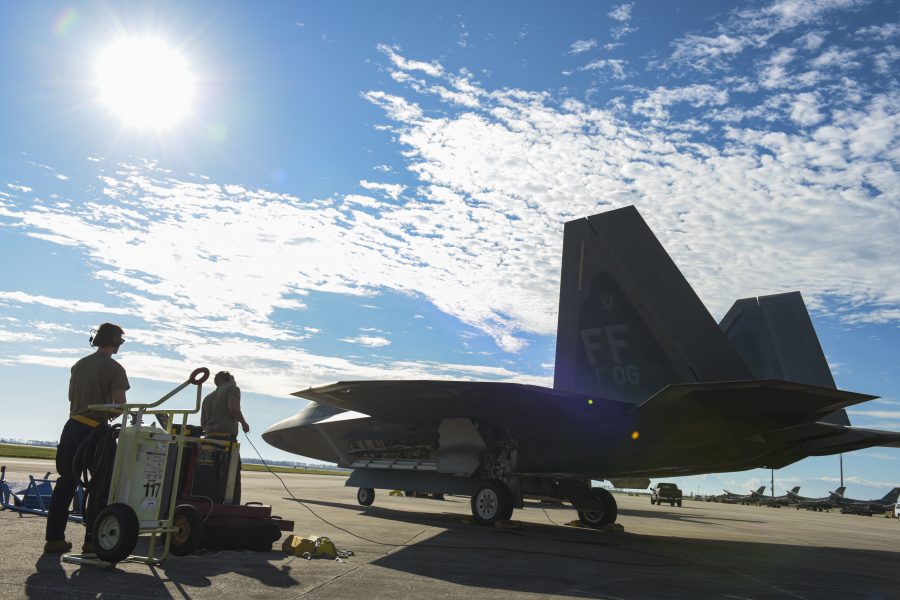Tech firms SimpleSense and Novetta will take the lead in setting up a new kind of operations center for Tyndall Air Force Base, Fla., as part of its “Base of the Future” effort.
The Air Force awarded $9 million to startup SimpleSense this month for the virtual “Installation Resilience Operations Center,” which will act as a central hub for base security and facility operations at Tyndall. The Florida Panhandle base is a proving ground of sorts for new infrastructure ideas as it rebuilds from Hurricane Michael, which destroyed much of the installation in 2018.
Tyndall sought ideas from four pairs of companies at a “Shark Tank”-style pitch competition on Sept. 14. SimpleSense, which pulls in emergency services data from civilian and military agencies to create a holistic picture of base security, and data-analytics company Novetta came out on top.
“The selection team determined SimpleSense/Novetta’s innovative approach could have the most potential to reshape the way the AF manages [the Internet of Things] across the enterprise,” Air Force spokesman Mark Kinkade said.
Their software will connect to sensors and systems across the base to gather information about building health, personnel safety, energy efficiency, and more.
“The installation of the future requires immediate awareness, response, and even prediction of major incidents, whether a 911 call or equipment failure,” SimpleSense said in a Sept. 21 release. “The objective of IROC is to modernize response operations to enable real-time data collection and analysis of all operational technology systems, from smart buildings to physical security systems. Breaking down the stovepipes that separate data enables a safer, more productive, and resilient installation.”
For example, in case of a shooting on base, sensors could detect gunshots and ping the ops center and first responders. More people would be aware of a dangerous situation earlier, and be able to respond faster.
Big data can help in less dire situations, too. If the IROC software notes that an air conditioning unit is about to fail, or a structure is close to collapse, it can save the Air Force money by addressing issues sooner instead of waiting for things to break.
Working with the Tyndall Program Management Office, which is in charge of rebuilding the base, the companies will gradually mature their technology to be fully functional in three years. If the Air Force Installation and Mission Support Center likes what it sees, it could spread the concept to other bases.
“Every wing commander has a responsibility to think about these ‘base of the future’ concepts, anytime they look at implementing an infrastructure project or renovation, and take what makes sense for their situation to implement,” Tyndall PMO boss Brig. Gen. Patrice A. Melancon recently said.
